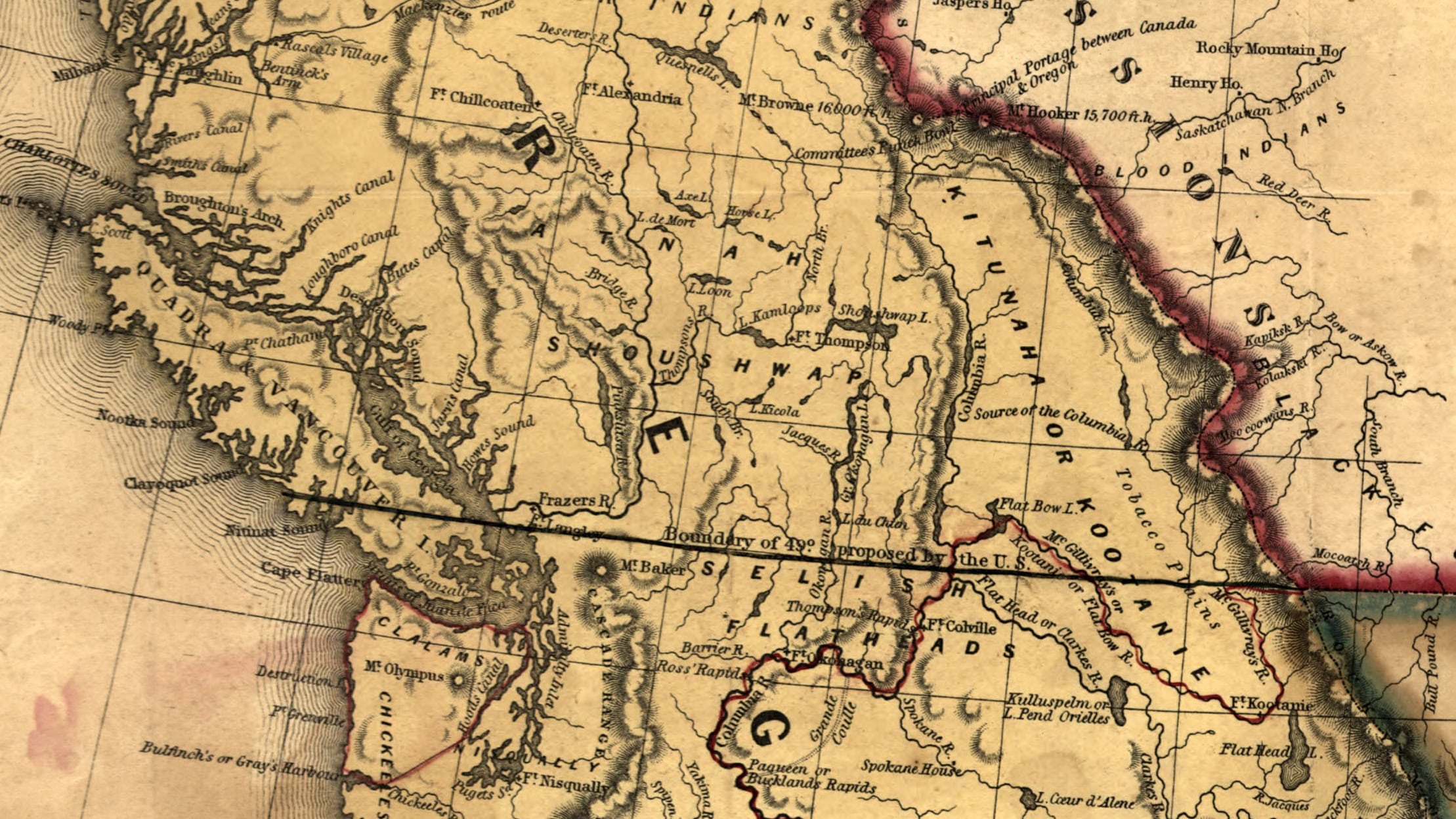We all know that the old "Oregon Territory" included the state of Washington. But one old map I saw had Oregon running north almost to Alaska. Did Manifest Destiny reverse itself, or did we lose a war with Canada while I wasn't paying attention? —Canadian Schlub
Clearly, you've never heard of the Great Pig War of 1859! (I'll bet you think I'm kidding.) But first things first.
What you're looking at there, young Schlub, is the famed 54˚ 40' parallel, immortalized in the 19th-century slogan "Fifty-four 40 or fight!" and later in the Dead Moon song of the same name. Try not to drool on it.
From 1818 to 1846, this parallel—about 425 miles north of our modern border with Canada—formed the northern border of what was then called "Oregon Country." Oregon Country was, by treaty, jointly administered by the U.S. and Britain, so maps that claim it as part of the U.S. are fudging a bit.
At this point in history, mind you, "administered" meant "thought it was fun to write your name on that part of the map." There were barely any settlers in the region, much less roads or a post office.
Eventually, though, enough running-dog colonialism started happening in the area that it became impractical for two separate countries to claim dominion.
The great-grandparents of today's Freedom Caucus favored annexing the whole thing under threat of war with Britain, under the snappy slogan referenced above.
Cooler heads noted that we were already facing one long-distance conflict with Mexico, and negotiated a new border at the 49th parallel, with a small carve-out so the Brits could keep Vancouver Island.
However, maps of the time were so crappy that both sides claimed the San Juan Islands, and American settlers there were soon cheek by jowl with Crown sheep farmers.
Tensions came to a head when a British pig was shot for eating an American farmer's potatoes. The two nations' militaries swarmed the region, leading to a monthslong standoff that came to be known as the Pig War.
Eventually, diplomats from the two respective homelands arrived to negotiate shared custody of the island in question. There were no casualties, excepting the pig (whose name, sadly, is lost to history).

